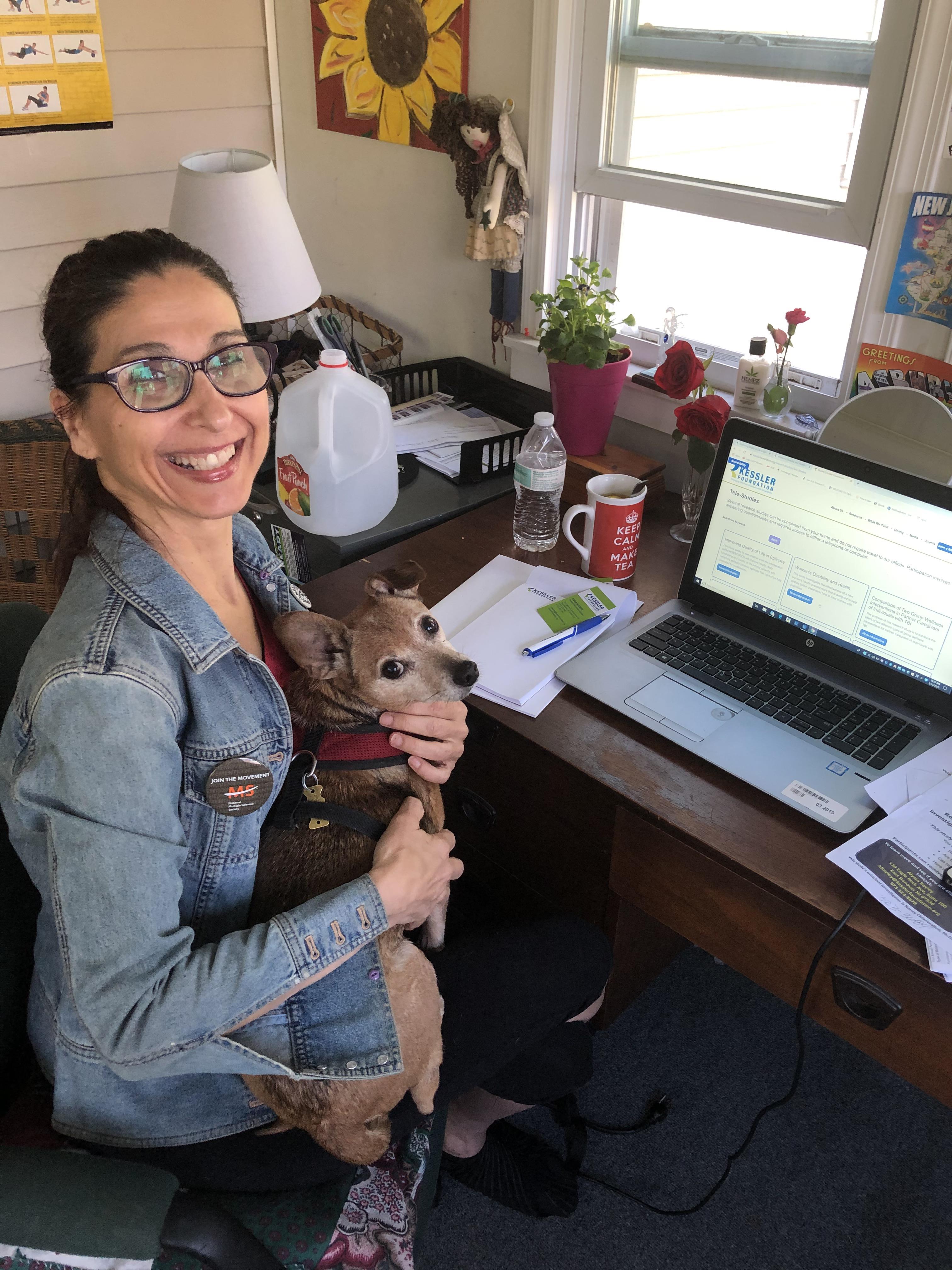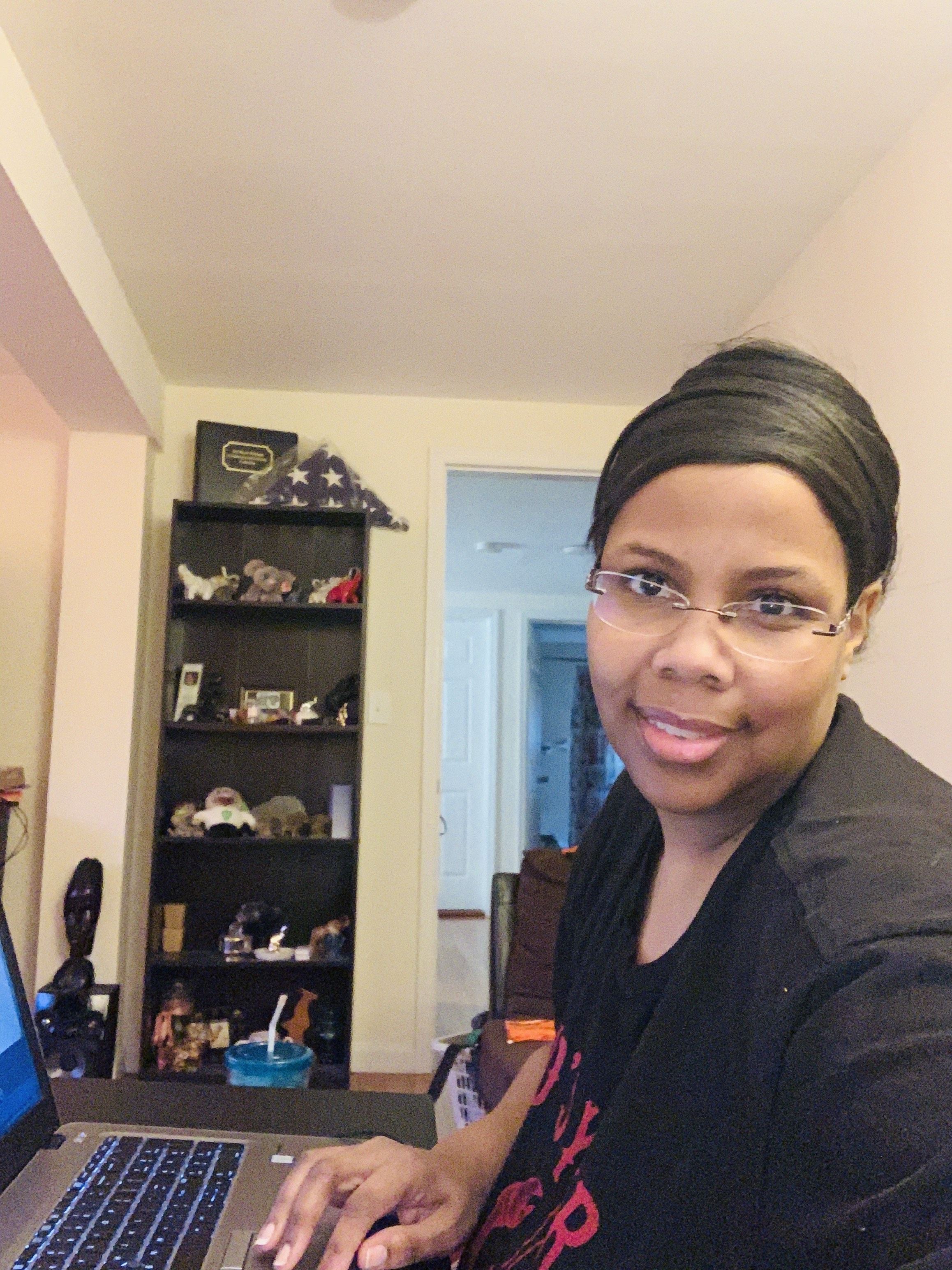Coping with Multiple Sclerosis during the COVID-19 Pandemic
In this episode of Kessler Foundation's podcast, Michaele Clayborne-Crosby and Carla Basante, discuss "Coping with MS during the COVID-19 Pandemic." This podcast is hosted by Erica Weber, PhD, research scientist at the Center for Traumatic Brain Injury.
Listen to the podcast, view the transcript and download this episode and others for free on Apple Podcasts, SoundCloud, Podbean, Spotify, or wherever you get your podcasts.
Below is an excerpt from their conversation.
Dr. Erica Weber: It's good to hear your voices even though we're not in the office. I want to get a sense of how has this been going for you? I'm sure life is looking a little bit different. And with your disabilities, having MS at the same time as dealing with the Coronavirus, it's got to be an extra challenge. So can you give us a bit of insight into what your day-to-day has been looking like?
Michaele Clayborne-Crosby: For me, it'd actually be working from home hasn't been that great of a challenge. It actually is something-- the social isolation has been something that I've been used to since the diagnosis back in 2000. Since that diagnosis, I've had to learn to deal with not always being able to attend different events with family and friends because of different health issues or unexpected health issues. So this feeling of being able to work from home has actually been a blessing for me in disguise.
Dr. Weber: Interesting. Because I know it's been, if anything, just a really big change. But it sounds like you're noticing a couple more silver linings at least with regard to your work life.
Clayborne-Crosby: Absolutely. Definitely. Absolutely. Simple things like getting up in the morning to get dressed to go to work. Usually, at times when I was working in the office, which the company I love, getting up to get dressed, take a shower, by the time I would get up, get dressed, after taking a shower, I would be completely exhausted and be ready to get back into bed to go back to sleep.
Dr. Weber: Oh, goodness.
Clayborne-Crosby: Yes. Fatigue is a big thing for individuals who are living with the diagnosis of multiple sclerosis. And fatigue is something that's often hard to explain to individuals. It just really does weigh you down. It make you feel like you've run a zillion miles just from going to get in the shower and getting out. So when you're living with fatigue, sometimes it takes everything you have and even stuff you don't really have to make it from your bed to your car and then driving to your office, and then working in your office all day. So being able to be here in my house working, whether it be on my couch, working while I stay in the bed with a laptop, that has been a phenomenal, phenomenal blessing for me personally.
Dr. Weber: Well, so being able to at least maybe alter your schedule so that it fits how your symptoms happen to be flaring up that day. If I understand correctly, fatigue isn't really something that you can predict in MS. It kind of seems to come out of nowhere sometimes.
Carla Basante: Yes. It comes out of nowhere on a daily basis. Especially at this time with us being overly thinking about our health, with having multiple sclerosis, with having an autoimmune disease, with everything that's going on, and with all the restrictions that are global, national, locally. We're extra hypervigilant in regards to trying to take care of ourselves. And that brings stressors in on itself. But being able to work from home, it kind of helps to regulate that environment as well, because we're able to be productive. And again, like Michelle said, our wonderful organization that has helped to adapt to people working from home at this time has been such a rewarding experience. Like Michelle said, I feel the exact same way. We don't know how we're going to feel-- we don't know how we're going to feel every second of every day and fatigue can hit at any time. And we can say it's the weather, we could say it's this, but having, again, a compromised immune system, we're subjected to so many variables. But working from home with an organization that supports you and is staying up to date in regards to different ways to be productive-- like with Kessler, we are now doing telestudies from home. So I am recruiting people to participate in telestudies. So for me, that just adds another highlight to working from home that I'm able to be productive on that level and have more people participate in studies that I know will benefit them.


